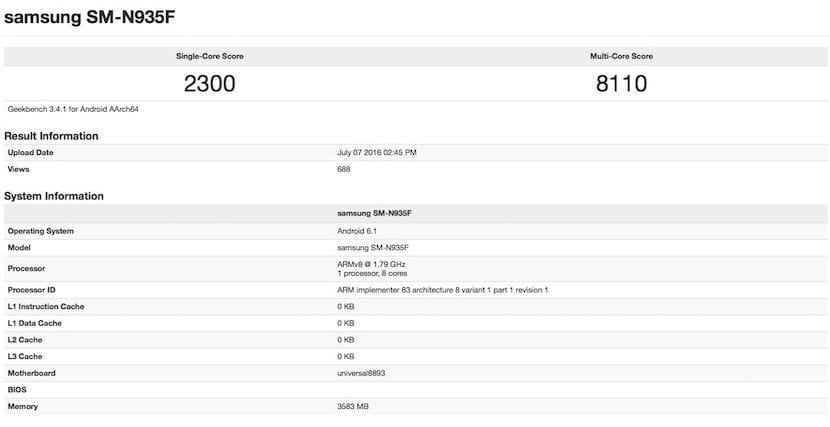
Every time there is less until August 2, date in which the new Samsung Galaxy Note 7 will most likely be presented and according to the latest rumors, the processor that we will find inside will be the Exynos 8893. Apparently Samsung's intention is to completely stop using Qualcomm processors.
Currently we have clear almost all the specifications of the next Samsung phablet but We were not very clear about the processor that the company would use. But according to the latest leak in GeekBench, the processor that will be used was not covered by the specifications that had been leaked so far.
For some time now, Samsung, Exynos processors are offering much better performance than Qualcomm's. It is clear that Samsung is closing the loop and trying to rely on third parties as little as possible. Not only in terms of processor but it also seems that it is working on a version of Tizen for smartphones, to further reduce the dependence on Android if possible.
The Exynos 8893 processor is an upgrade from the Exynos 8890, the processor currently used by Samsung in the Galaxy S7 and S7 Edge. The Galaxy S7 was released with two different processors, the Snapdragon 820 and the Exynos 8890, depending on the country where it is on sale. Although the performance of both processors is very similar, the latest tests claim that Samsung's processor works better in combination than Qualcomm's.
The Exynos 8893 processor in combination with the 4GB of RAM that the Galaxy Note 7 would carry gives us a score of 2300 in the single core test while in the multi-core test it reaches 8110. At the moment until next August 2 we will not be able to leave doubts and see if finally Samsung's dependence on Qualcomm continues to be reduced until it is completely left.